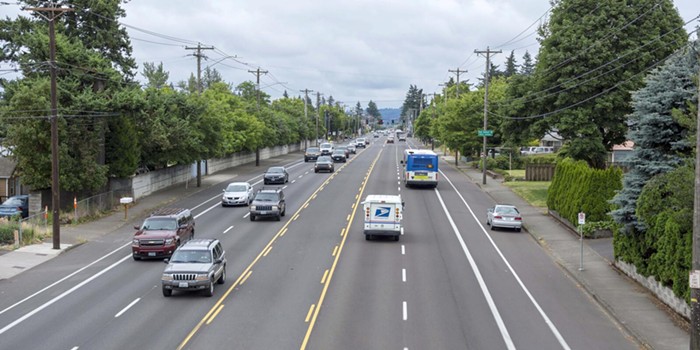
Those are the shocking stats that national economic and social equity advocate Radhika Fox told a packed room this afternoon during a talk on transit equity hosted by Transportation for America and the local union SEIU 49.
Wealthier families spend less of their income on transportation—about 22 percent.
The discussion about the unequal cost of and access to transportation segues with a new study that Dan linked this morning showing that the poorest quarter of Americans use bikes for about one-third of all their trips. Biking, walking, and transit are the cheapest options for getting around (owning a car costs an average $8,776 a year!) but service cutbacks and streets that are unsafe for pedestrians and cyclists can make those low-cost options less possible.
SEIU organizer Ron Ruggiero floated an interesting idea: Launching a city-wide union campaign to pressure large employers to provide free transit for workers. "Why does every employer with over 500 employees not provide free transit to their employees?" asked Ruggiero, who represents groups like hospital workers and security guards. "We want to make sure there's regular and good service to low income communities. Our members might get off at midnight or three o'clock in the morning and they're sometimes having to wait hours for service."
A union-backed pro-transit campaign is certainly a compelling idea. Support for expanding transit is widespread (a recent Rockefeller Foundation poll revealed that 80 percent of Americans believe expanding public transit will improve the country) but public transit activism in Portland has no powerful transit advocacy group.
Speaking of which, check out Portland Afoot's list of the top 100 downtown employers for non-car commuters.
On a national level, Transportation for America was previously pushing to double federal investment in public transit, walking, and biking programs in the current federal transportation bill. But now with the slash-happy Republican House, they're fighting to just preserve current investments.


















